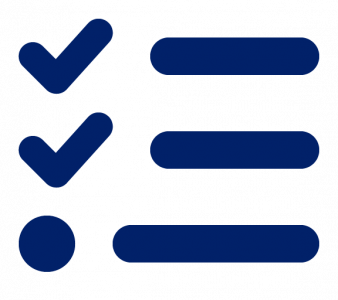Goal: Assessment and Informed Improvement

Develop and implement an iterative approach to assessment that fosters a campus-wide culture of ongoing improvement based on data.
NECC is committed to improvement based on quantitative and qualitative data and to the use of assessment and evaluation to understand the impact of improvement initiatives. We will continue to develop a culture of assessment and better codify the ways in which assessment of student and institutional outcomes will be used for equity and continued improvement.

Strategies:
- Develop a framework that enables consistent assessment of work/programs that leads to implementation of change. Include a shared language for assessment at all levels of the college.
To be most effective, assessment work needs to be done consistently across the college, with common terms and purpose, to “close the loop” and inform future work. Time, space, and support needs to be allowed to uncomplicate any systems for clear assessment. All assessment should be disaggregated through an equity lens for greatest impact. - Establish a system by which each department and individual create an operation plan with initiatives that roll up to the overarching strategic plan and strategies with measurable outcomes.
With these department and individual plans, create a process to ensure all plans and initiatives have a clear timeline, appropriate resources, and final reporting metrics in place that highlights equitable outcomes before implementation. A commitment to assessment requires financial resources for building capacity, and a clear plan for use of assessment. - Improve professional development for faculty and staff about assessment and its role in improving teaching and learning.
A commitment by faculty and staff requires knowledge and appreciation of the role assessment plays in improving equitable student outcomes and informing academic decisions. - Develop shared learning outcomes using current, equity-minded learning models to close achievement gaps.
Integrating shared learning outcomes at the classroom and institutional level will positively impact racially minoritized students.
Metrics:
- Create baseline dataset to measure faculty and staff participation in assessment-related activities including:
- Count of Departments/Divisions with annual documented assessment plans
- Participation in professional development
- Participation in Assessment Day
- Count of completed program reviews
- Participation in non-academic areas of the college in self-evaluation and assessment activities
- Once baseline dataset is created, determine target increases for each metric within one Fiscal Year

